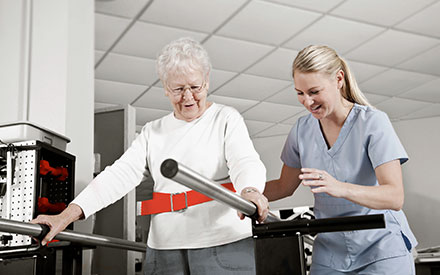Introduction
If you’re a physical therapist (PT) looking to expand your knowledge and skills, continuing education units (CEUs) help you stay updated with the latest practices. These physical therapy CEU courses cover new techniques, research, and treatment methods to ensure you offer the best care to your patients. Whether you’re interested in advanced manual therapy or new treatment methods, CEUs ensure you develop relevant skills to remain competent. Let’s explore some of the main areas covered in physical therapy CEU courses.
Importance of CEU Courses in Physical Therapy
As a physical therapist, it’s important to keep learning and improving your skills. The U.S. Bureau of Labor Statistics predicts that jobs for physical therapists will increase by 14% from 2022 to 2033. This is much faster than many other careers; therefore CEUs help you stay prepared.
Here’s a look at how CEU courses make an impact.
Staying Current in a Dynamic Field
Physical therapy evolves as research uncovers new treatments and techniques. CEU courses help therapists stay up to date with the latest practices. Methods such as advanced rehabilitation methods, equipment, and techniques are contantly improved to increase the efficiency of patient care. CEUs ensure therapists offer the best treatments as per the latest healthcare standards.
Meeting Licensing Requirements
Many states mandate CEU completion for license renewal. These requirements are in place to ensure that the therapists are well-versed with the new guidelines and techniques as per the latest research. Meeting licensing requirements protect the PTs from any legal troubles as well.
Expanding Skills and Expertise
Physical therapy encompasses a wide range of specialities, from sports rehabilitation to pediatric care. If you are interested in a particular niche, it is important to opt for CEU courses specific to that domain. This helps PTs expand their skills and opens more opportunities for career enhancement.
Enhancing Career Opportunities
Therapists who pursue continuing education often find it easier to take on leadership roles or transition into specialized positions. Employers value professionals who demonstrate a commitment to learning and growth, making CEUs a worthwhile investment for career advancement.
Building a Network of Peers
CEU courses, whether in-person or virtual, connect therapists with like-minded professionals. Sharing experiences, discussing challenges, and learning from peers can spark fresh ideas and foster a sense of community within the field.
Improving Patient Outcomes
Ultimately, CEU courses are about better serving patients. Therapists equipped with up-to-date knowledge and skills can provide more personalized care, helping clients achieve their goals more effectively.
Let us understand what subjects are covered in these courses in the next sections.
Subjects Covered in Physical Therapy CEU Courses
Physical therapy CEU courses cover a range of topics that increase a therapist’s knowledge. Let’s look at some of the main subjects covered in these courses.
Manual Therapy Techniques
Manual therapy is the treatment of musculoskeletal pain and dysfunction through hands-on techniques. Many CEU courses on physical therapy focus on joint mobilization, manipulation, and soft tissue massage. Properly applying these techniques at the appropriate time enhances patient recovery.
Pain Management Strategies
Pain management is one fundamental concept of physical therapy. Many patients deal with chronic pain; courses teach you methods for reducing pain. These techniques may include heat or cold therapy and education on posture and movement.
Rehabilitation Techniques
Therapeutic rehabilitation is the primary role of the physical therapist. Most CEU courses reflect rehabilitation strategies for injuries and conditions such as sports injuries, postoperative care, and stroke rehabilitation. Courses also include developing personalized rehabilitation programs specific to individual needs.
Pediatric and Geriatric Physical Therapy
Physical therapists can specialize in pediatrics or geriatrics. Physical therapy CEU courses most likely will have specialized training in these areas. Pediatric courses teach therapists how to care for children with developmental delays or cerebral palsy. Geriatric courses instruct therapists on age-specific conditions such as arthritis or osteoporosis.
Orthopedic and Neurological Physical Therapy
Orthopedic and neurological conditions are very common in physical therapy. Most CEU courses emphasize diagnosing and treating musculoskeletal disorders, such as fractures, sprains, and arthritis. These courses teach therapists to develop treatment plans which are specific to these patient needs.
Sports Physical Therapy
Sports physical therapy is a highly sought-after specialization in CEU courses. This course is taken by therapists dealing with athletes or those recovering after sports injuries. Some of the topics that may be discussed in courses on CEU sports physical therapy include prevention of injury, biomechanics, and return-to-play protocols. This makes it easier for athletes to recover completely and safely return to their sport.
Stay Updated With Physical Therapy CEU Courses
Physical therapy CEU courses are designed to keep therapists aligned with changing medical practices. Continuing education helps physical therapists stand out in a competitive job market. They focus on practical skills and knowledge that therapists can use immediately. Without these credits, therapists risk losing their licenses, which can impact their careers. Enroll in CEU courses today to stay up to date with the latest research, techniques, and advancements in physical therapy.
Also Read:- pedro-paulo-executive-coaching

